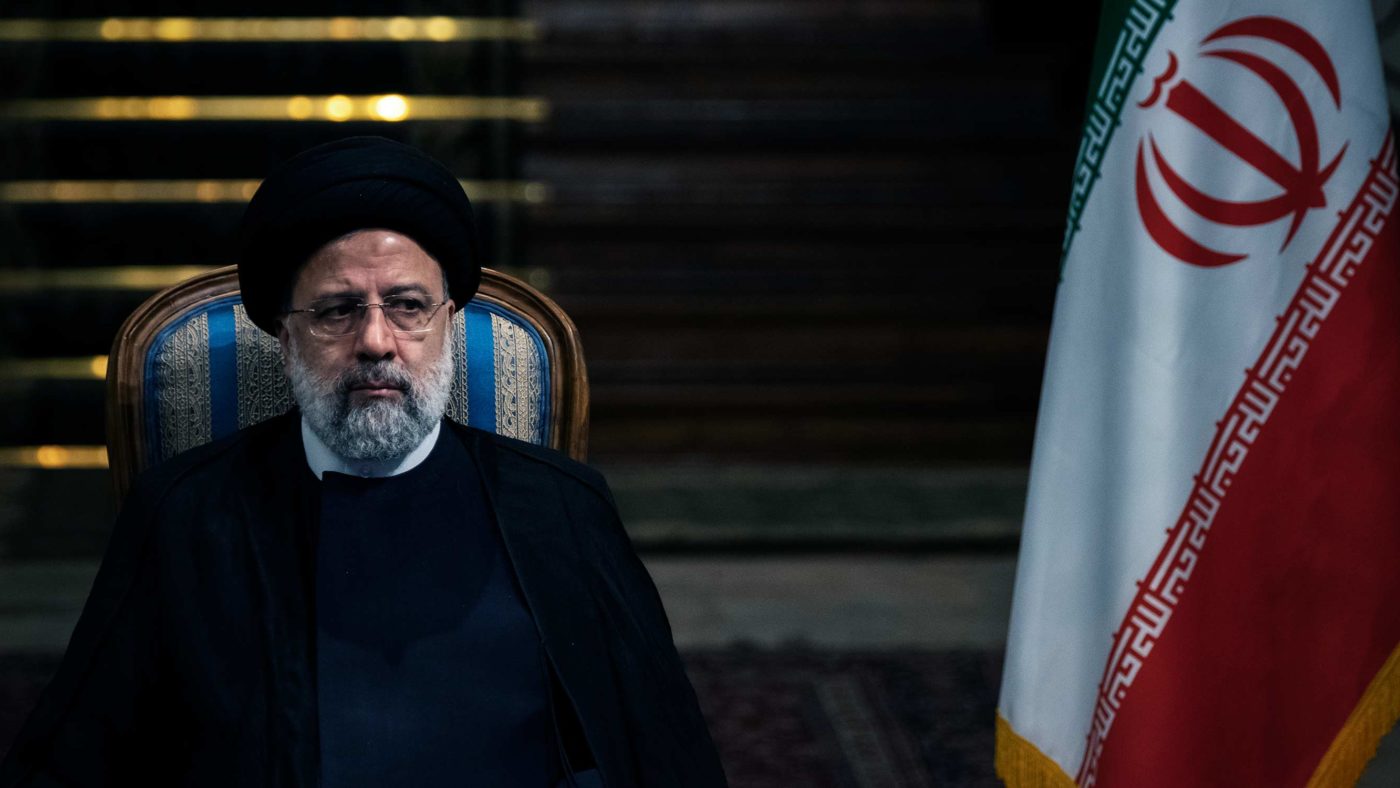There have been two major developments regarding Iran in the past few weeks which tell us important things about the regime’s direction.
First, a major protest in the southern city of Abadan, where the Ayatollah’s emissary was shouted down by crowds furious about the collapse of a building in which 31 people died.
Second, the nuclear watchdog telling the world that the Iranian regime is rapidly ramping up uranium enrichment while stalling international inspections.
Though the latter might be of more concern to people in London or Manchester, the former has decisively more chance to change the weather in Iran. After four decades of corrupt totalitarian rule, the people are sick and tired of clerical rule, and they are taking to the streets every night calling for regime change. These days, most have nothing left to lose.
In September 2005, when I first told British reporters about the regime’s clandestine efforts to smuggle Beryllium for its nuclear bomb, the same question flitted back and forth in my mind: What happens first? Will the world manage to stop the biggest state sponsor of terrorism from acquiring nuclear weapons, or will the Iranian people make a decisive intervention by overthrowing the regime?
After the exposure of its clandestine nuclear program, its worldwide network of terrorism, and its grave human rights abuses inside the country, the Iranian regime is now second only to Russia as the most sanctioned state in the world. Thanks to the failure to properly invest in the country’s infrastructure and domestic production, Iran’s economy is now on the verge of collapse and cash reserves have almost dried up.
The nuclear dossier and the regime’s terrorism are very much tied to the protests. Despite the official line that the population is backing the state in claiming that ‘uranium enrichment is an inalienable right’, Iranians have denounced the nuclear program. Indeed, they have chanted in numerous protests that ‘livelihoods and a proper life are our inalienable rights’ – a direct rejoinder to the regime’s rhetoric, as well as a plea to stop tossing the country’s wealth into the disastrous black hole of the nuclear program.
The nuclear programme is not just about wasted money though. Last year, two major uprisings took place because of water shortages, which were exacerbated by the government funneling huge amounts of water to nuclear plants and a state-owned steel factory. In doing so, the state has deprived the people of Isfahan and Khuzestan provinces, both literally surrounded by two major rivers, and is destroying their crops and livestock.
The regime’s foreign adventurism is also becoming a source of domestic strife. Tehran’s continued attempts to gain geopolitical leverage by investing billions in foreign militia groups have been met with a wave of protests since 2017. Demonstrators chant slogans like ‘Let go of Syria, start caring about us!’ and ‘No to Gaza, no to Lebanon, I’ll die for Iran!’. There have also been overt challenges to the powers that be, with shouts of ‘No to the Shah, no to the mullahs, I am for the people’ and even ‘Death to Khameini, viva Rajavi’ [the head of the National Council of Resistance of Iran].
Despite all this, Western leaders are still trying to reason with a regime that has time and again proven it can’t be trusted. They have been talking to Iranian delegations about the nuclear program for almost two decades. As long as they keep talking, Tehran understands that there will be no concrete action.
Nor is there the slightest sign of the regime moderating its policies or outlook. In June 2021 the regime installed as president Ebrahim Raisi, a figure whose commitment to brutal, murderous suppression of political opponents is all too well known. Eliminating all signs of goodwill gestures to the West by consolidating power in the executive, legislative and judicial branches, the Iranian regime’s Supreme Leader also announced a ‘look to the East policy’, affirming Tehran’s alliance with Russia and China.
Tehran has clearly made up its mind and it’s now time for the rest of the world to do the same. As the media is the fourth estate, giving coverage to what’s going on in the streets of Iran is a matter of life and death.
And it’s clear the regime is teetering. Short on funds and certain that sanctions relief is not in sight, the new administration faces a soaring budget deficit and sky-high inflation, which is sending food prices through the roof. Since Raisi became president, not a day has passed without protests inside the country and clashes are getting more violent day by day.
For better or for worse, my question from 2005 is still valid: Will the international community stop Tehran getting nukes, or will the Iranian people stop this nightmare by overthrowing the regime?
Perhaps in retrospect, I could have phrased it more precisely. For the question today is: will the world help the Iranian people prevent nuclear-armed religious extremism, or will it stand by and watch?
Click here to subscribe to our daily briefing – the best pieces from CapX and across the web.
CapX depends on the generosity of its readers. If you value what we do, please consider making a donation.


